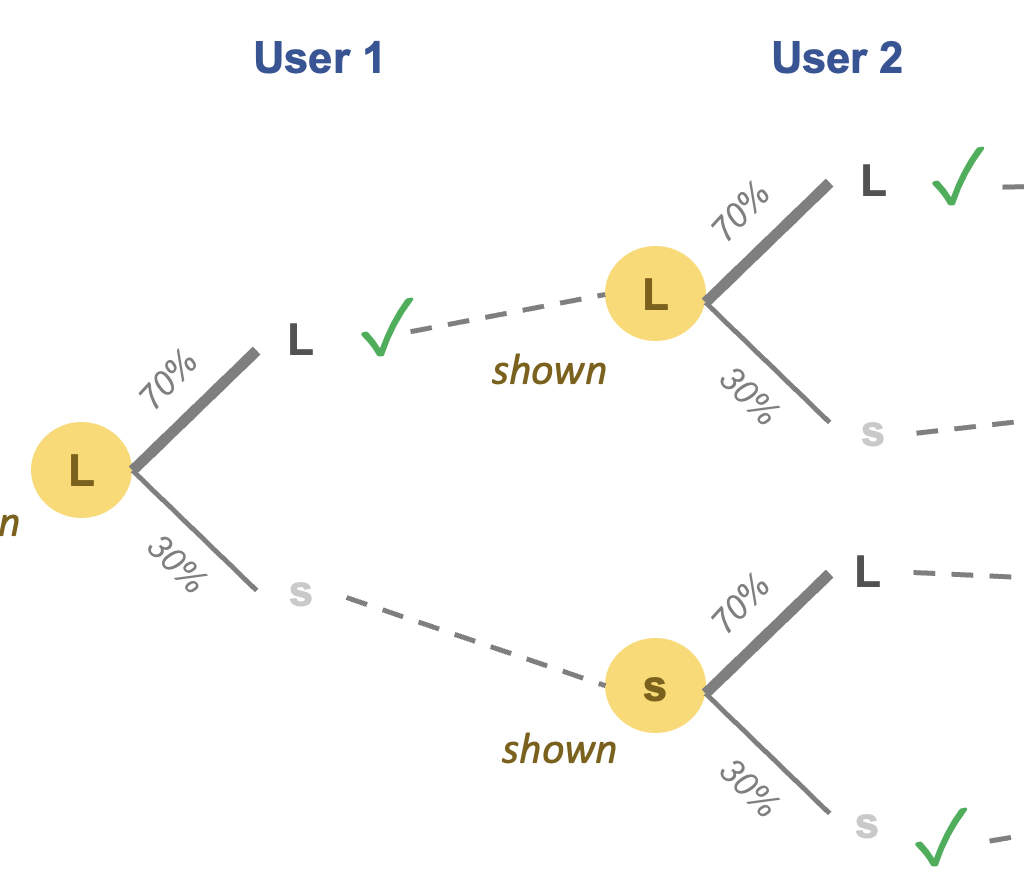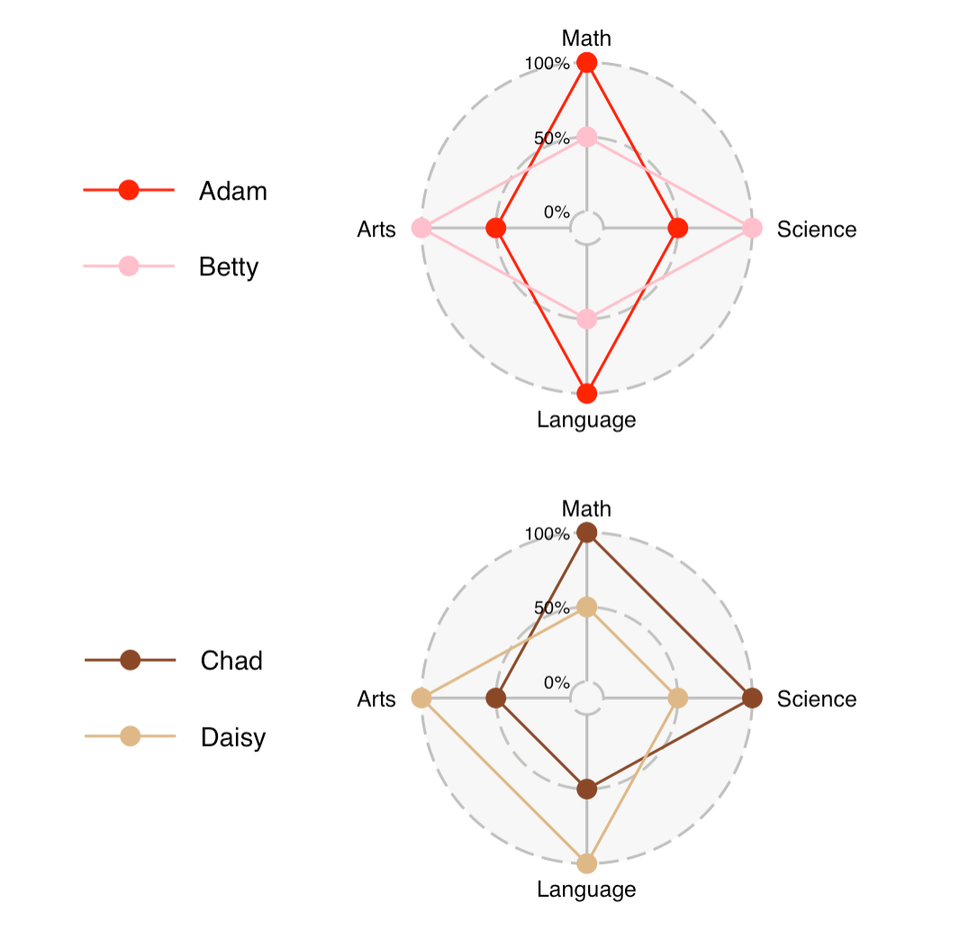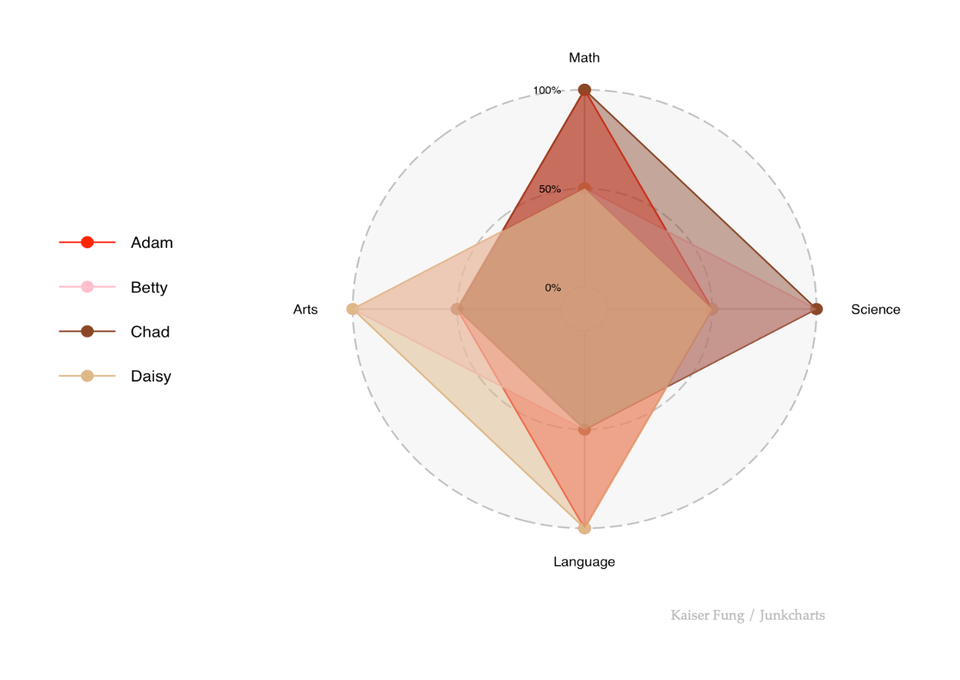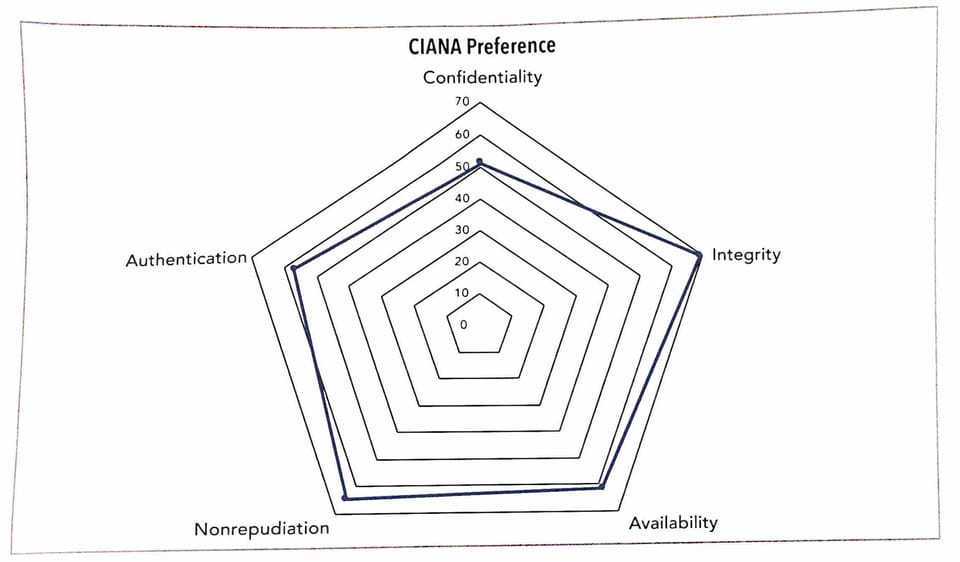Baby names and success
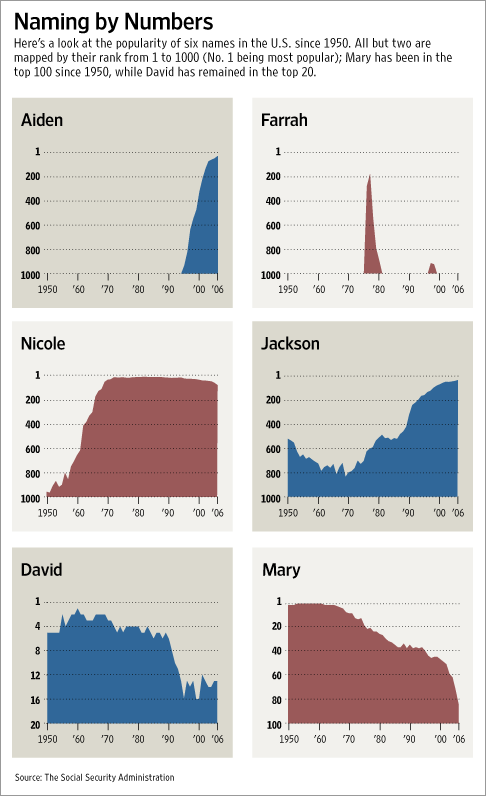
While we speak of baby names, David F. nominates this set of 6 charts from WSJ. Compare this with Wattenberg's names voyager, and the benefit of interactive graphics is immediately evident.
In David's words:
They show graphs of six different names, but the two on the bottom use a dramatically different scale (from 1st to ~20th, instead of from 1st to 1000th). The introductory text notes the difference, but it is still a shock.
We like the use of "small multiples" but their impact is compromised if we don't keep the background material constant so that readers can compare between charts. By having different scales, the message was distorted: Mary has had a much larger drop than David, and it's easily missed in these charts.
Lines should take the place of areas which carry scant meaning in this context.
The use of blue and red is a nice touch but dovetailing the male and female charts strikes us as excessive fun. It would have been clearer to give the sons and the daughters their own columns.
The article itself relates the anguish of modern parents in naming their babies. Much of this angst can be traced to serious econometric studies that claim to have found cause-and-effect relationships between someone's name and their eventual success in life. Some of this research was highlighted in Freakonomics, for example. My stance is that all such studies are dubious, there being innumerable confounding factors (socio-economic, genetic, cultural, luck, etc. etc.). In addition, the measured response can range from "happiness" to income to many other metrics. The danger of finding something because one looks hard enough is very real. We don't currently have tools powerful enough to substantiate this sort of studies.
Source: "The Baby-Name Business", Wall Street Journal, June 22, 2007
